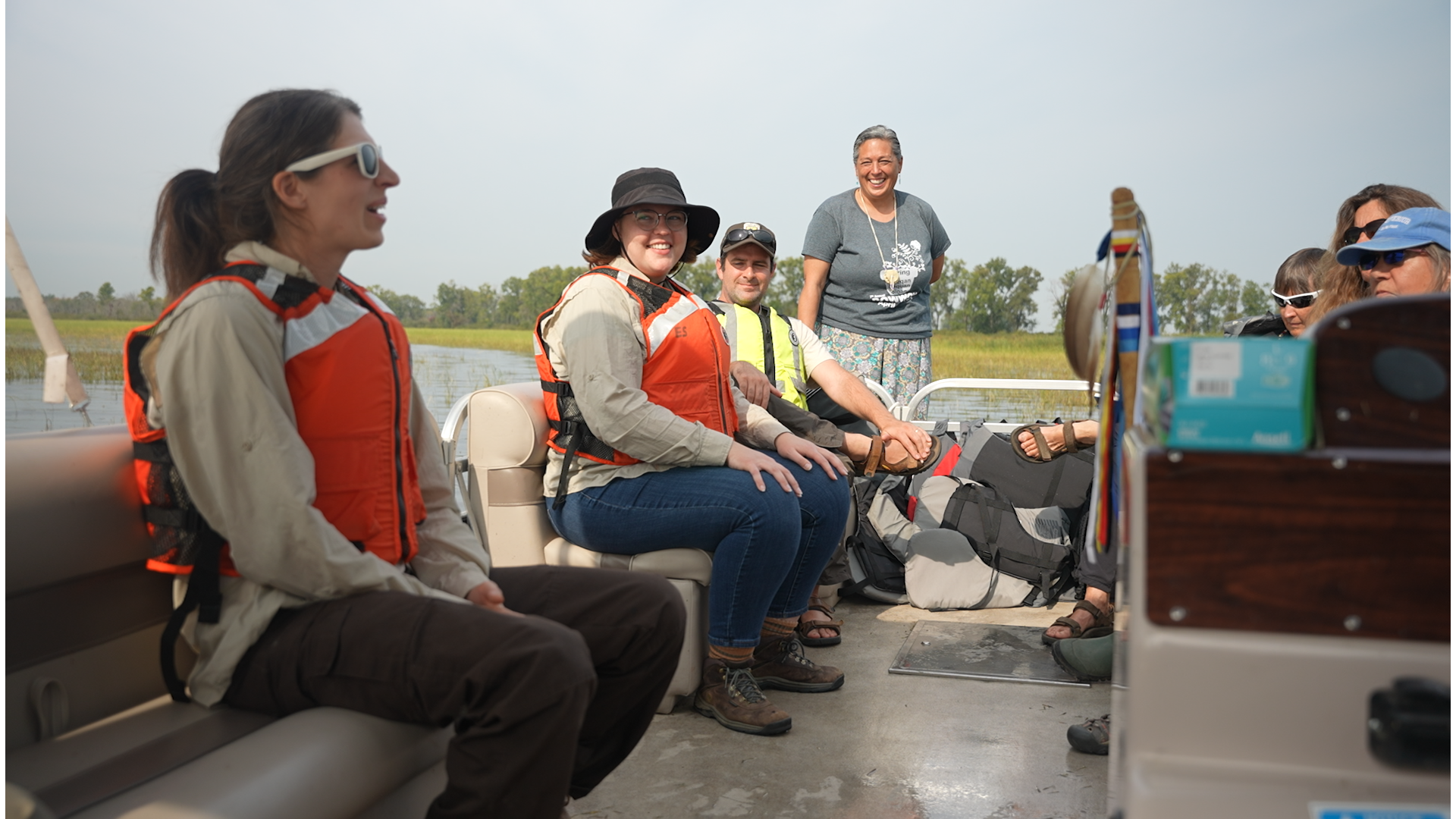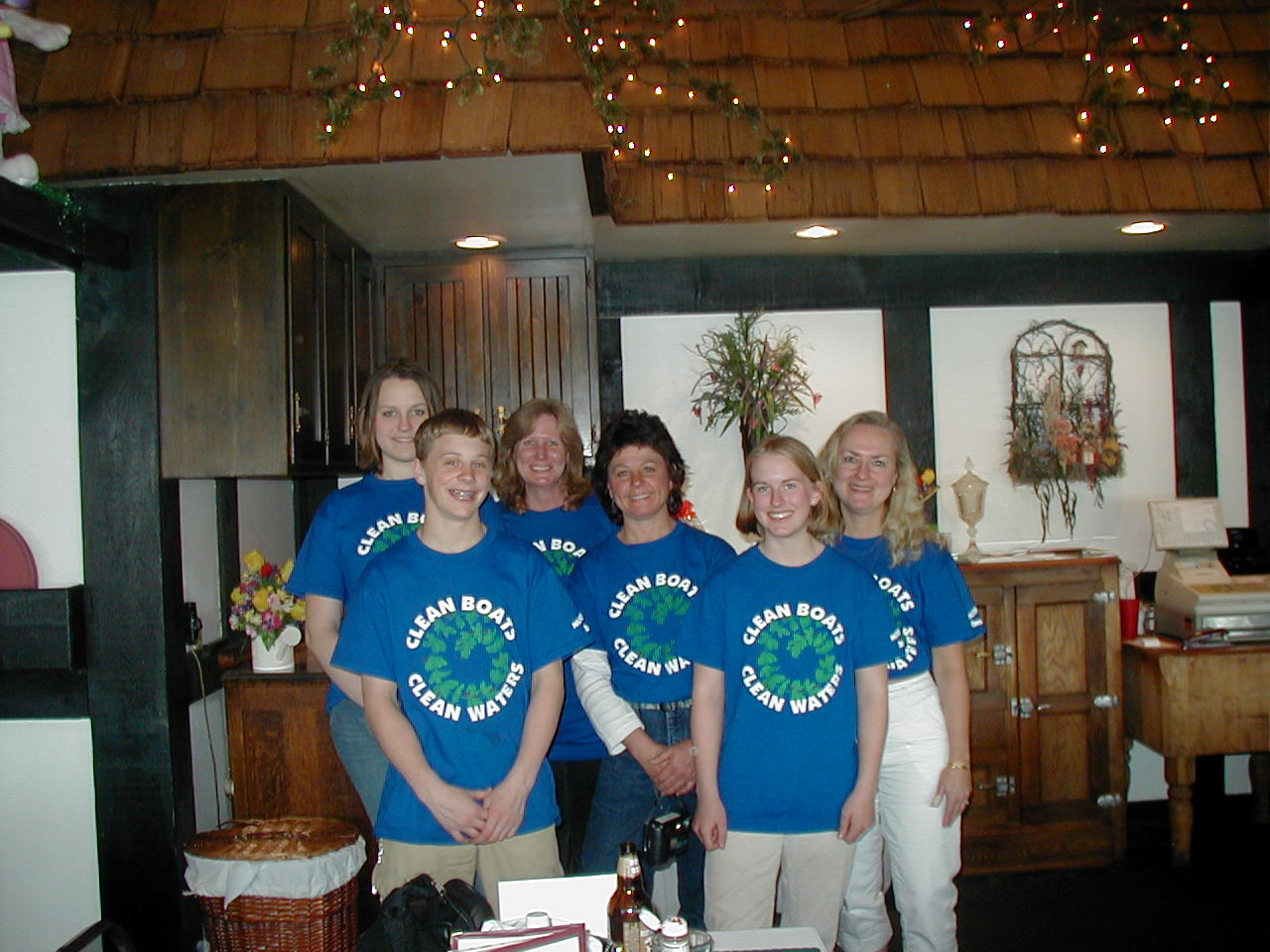Sharon Cook is unusually connected to the Great Lakes. She lives two blocks from Lake Michigan in Milwaukee. She tutors a fourth-grade class once a week at a school with a Great Lakes focus. And she has literally immersed herself in Lake Michigan — diving down fifty feet to the shipwreck that claimed the life of her great-great-grandmother and great-aunt.
Cook, a government relations consultant, plans to use those connections as a new member of Wisconsin Sea Grant’s advisory council to forge appreciation for the Great Lakes in others. “I’m glad to represent Milwaukee and to provide an urban perspective on the council,” Cook said. “People who live in urban areas need to understand the importance of the research being done on the Great Lakes. Many times, there’s a disconnect between urban areas and the natural resource that’s so very near them.”
How to bridge that disconnect? “The element of communicating with the public is what attracts me to Sea Grant and why I’m happy to have this appointment to the council,” Cook said. “Sea Grant funds good research and is known for collaborations. I’m always interested in getting the word out about those things to new audiences.”
Sea Grant director Jim Hurley agrees. “Wisconsin Sea Grant is a statewide program, and we’re always looking to reach audiences who can benefit from our work,” he said. “We welcome Sharon’s experience and knowledge to the council and look forward to getting her involved.”
Cook is also no stranger to using her educational background in political science to advocate for the Great Lakes. As a former water conservation policy director for the Alliance for the Great Lakes, she lobbied for the Great Lakes Water Compact. As the Milwaukee mayor’s designee on the Wisconsin Coastal Management Council, she helps decide which projects get funded to improve coastal communities.
She’s found creative ways to use her connections to the Great Lakes to open doors for her advocacy mission. “When I was working on the Great Lakes Compact, some groups didn’t want to hear about it because it was an environmental issue, but they loved to hear about shipwrecks, so I’d describe my dive to the Lady Elgin and then work in information about the compact and how Lake Michigan has changed since 1860, when the ship went down.”
The Lady Elgin is the wreck that took the lives of Cook’s great-great-grandmother and great-aunt. When the paddlewheel steamer sank off the coast north of Chicago after being rammed by a schooner in a storm, it led to the largest loss of life of any wreck in the Great Lakes – about 300 souls. Cook, who learned to dive just for this experience, participated for personal reasons and as part of an exhibition on the
wreck for the Milwaukee Public Museum, where Cook was a board member.
Her great-uncle survived the wreck, but in addition to the lives lost, her family lost $12,000 in gold that was sewn into her great-great-grandmother’s gown – proceeds from the sale of family property and a business in Canada that was to be used for down payments on farms for family members in Wisconsin.
Cook’s family managed to get by without the money and to remain in Wisconsin. In fact, they thrived — serving in congress, the state assembly, as town mayor, and on various county and town boards. Cook’s involvement with the Wisconsin Sea Grant advisory council continues her family’s long-standing pattern of civic involvement.





